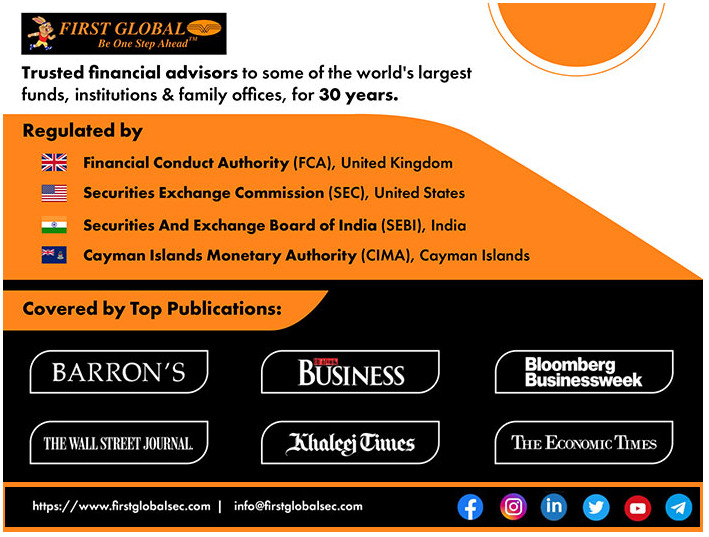When you switch on your laptop or mobile, at times a disconcerting ad pops up, talking about a young girl with three siblings who cannot afford food or school fees, or maybe, a parent asking for money for a life-saving surgery for their child.
An ad like that usually makes you a bit uncomfortable or guilty, if you do not respond to it.
Ever wonder why, in contrast, there is negligible emotional response while reading about how 30 percent of children in your district are malnourished or how many million cancer patients do not have money for their treatment?
The reason is simple: human beings are hardwired to respond to stories.
While impersonal statistics are easy to ignore, stories are not!
Human beings have always been the tellers of and listeners to, stories. Go back to when humans were still living in caves - they would return and tell stories about their hunts, which is what people see in the cave paintings.
Stories are the best way to pass on knowledge, wisdom, and information to the next generation. Children everywhere not just like stories, but they also find them the easiest way to learn things - something which was well understood by Vishnu Sharma when he wrote the Panchatantra.
Anthropologists say that stories exist in all cultures across all time periods, regardless of the level of sophistication.
It can be said that stories, in a very real sense, are what make us human.
Great. So, what is the issue here?
The issue is that not just stories, but also many other ways of thinking that make us human, are the very aspects that derail our investment journey.
This is the fascinating part - what we call quirks of thinking or biases today have had a real and valuable role to play in our evolution.
So, at some point in the evolutionary cycle, these were very good attributes to have - possibly when human were hunter-gatherers or when had to escape from saber-toothed tigers.
But, investing is something very very new in human history. And, when that same instinct, the same way of thinking, the same biases come into play while investing, they can change outcomes dramatically - and not usually in a positive way.
In theory, as an investor or even as a trader, understanding all the tools of the trade and the number crunching is very easy. Yet in the real world, we find that we are not as successful in investing as we should be.
The gap there really lies in understanding one’s own mind, in understanding the human mind and how that, at times, can derail a person from what he or she wants to achieve.
I am excited about starting this series on cognitive or thinking biases of the human mind, which have a direct impact on your investment journey.
The first bias we will be discussing is Storification
It’s not accidental that almost all ads, including the ones mentioned in the first para, are in the form of stories rather than a dry list of attributes or statistics. Stories work when there is a human being on the other side.
Stories are much more powerful and memorable - hence satisfying to us.
For example, if a fund manager is trying to convince investors to invest with her/ him and comes up with this nice little story - 'I am investing in this company because it has great brands, predictable cash flows, manages logistics very well etc. or why this particular management has a magic touch’ - as an investor, most human beings will get convinced.
But, the problem is that when you're investing, on the other side there is no human being - there's the market, which doesn't really care about how beautifully your story is crafted or how many people believe in it.
All of us would be able to think of instances when the story that was told about the market or the stocks, did not play out the way everyone said it would!
Number Two, what happens is that a story, by definition, has to be reasonably simple. So there has to be a beginning, cause, effect and an end. That's what you want.
However, life is much more complex. A company has hundreds of financial parameters and there are many business decisions that can change its outcome.
Then, there are not just its own decisions, but others that are allied - how the market is changing, how the consumer is evolving, and what the competition is doing.
In the interest of a good story, one needs to discard all of that complexity and turn it into a very simplified and therefore inaccurate and under-analyzed story.
Number three, life is not deterministic. It is about probabilities, but stories have a beginning, middle, and end.
No one would like a movie that ends saying that there is a 60 percent probability that the hero and heroine get together and get married, a 30 percent probability that they get married to other people, and 10 percent probability that they don't get married at all. That's not a good story!
In investing, there is a whole range of outcomes that have different probabilities attached to them. But, a fund manager or investor often gives his/her holdings a rosy future without risks - ignores discordant elements (industry cycle, favourable policy or plain luck) and that is where it becomes dangerous and risky. The world is a lot more complex than what simple stories tell us.
Also, remember that for a fund manager or investor to be wrong does not mean that they were talking complete nonsense all along. Nor that their stories did not have a kernel of truth - good stories always have that. It is only that it was being used to describe something that was much more complex like an industry, a company or a country that had many more moving parts and what actually happened was a lot different from what was predicted.
As Morgan Housel – partner at The Collaborative Fund and a former columnist - writes "...something that’s true but incomplete might be more dangerous than something that’s wrong because a little truth is a fuel for a lot of overconfidence."
Number Four, as human storytellers we get invested in our stories because they then determine our self-worth and net worth.
As we repeat that story, we get more and more convinced about it. We become invested in not just the stock but also our story about the stock. And because of that, it becomes very difficult to change our mind and the best among us fall for that!
If you look at Warren Buffett, he sold - in a sense – the Coke story for a long time - that great brand (of course, it was the number one brand in the world for decades), predictable cash flows, the moat around the business, etc.
Of course, like all great stories, none of these factors were incorrect or untrue, but they still did not capture all the changes that were happening in the company and the industry around it, including how the consumer was evolving away from sugary sodas, Pepsi was moving faster on a variety of fronts and so on.
Now, look at what happened to Buffett's Coke position. Mind you it did very well for several years after he bought it, but then things changed. However, by then he was arguably so invested in his story that he could not change his mind. He held on for far too long!
Thereafter, if you look at his Coke investment from 1993 to 2020, it went up only eight times. In that time the S&P 500 itself went up 13 times, and Pepsi 30 times!
So the story derails not only the audience but also the storyteller because ultimately the storyteller also gets convinced of her/ his story.
Ask yourself what investing story you are buying into - maybe about a whole market, a sector or a stock. Check whether it makes complete sense or are you discarding some facts and data which do not fit in with your story.
Even if the story currently makes sense, is that permanent?
Consciously challenge all the assumptions that have gone into making that neat little story in your head.
Think of alternative endings to the story instead of the one you've been propagating.
Do all this and you just may be able to distance yourself just a bit from the Storification bias!
Look forward to meeting you in a few days with another human bias...or two.
(A version of this article first appeared in Moneycontrol)
From the desk of
Devina Mehra
If you want any help at all in your wealth creation journey, in managing your Investments, just drop us a line via this link and we will be right by your side, super quick!
Or WhatsApp us on +91 88501 69753
Chat soon!


Economists Think Dollar's Fall May Explain the Recent ‘Rally’ by Steve Liesman
Einstein taught us about relativity in nature. Now come Devina Mehra and Shankar Sharma of First Global to teach us about relativity in financial markets -- and raise some serious questions about just what is driving stock prices.

First Global reports are quite credible and, on occasion, more than that.
What prompts this mention is Intel's earnings report and the fact that First Global has had a pretty good bead on the company and its stock.

AMD up again following First Global upgrade to ‘buy’ (AMD) By Tomi Kilgore
Analyst Kuldeep Koul at First Global upgraded Advanced Micro Devices (AMD) to "buy" from "outperform," given the "exceptional traction" that the chipmaker's Opteron line of processors has been able to get.

Baidu Climbs on First Global’s ‘Outperform’ Outlook
Baidu Inc., the operator of China’s most-used Internet search engine, rose to the highest price in two weeks after First Global rated the shares “outperform? in new coverage.

Personality counts: Walmart's frugal, but Target charms
"It's better to take a slight hit on [profit] margins and keep on moving and inventing," says First Global Securities. And at least for now, Target is inventing in a way that appeals to consumers with money to spend.

Dead Batteries
At 11 times trailing earnings, Energizer is cheaper; Gillette's multiple is 25. But cheaper doesn't mean better, says First Global.

Bipinchandra Dugam @bipinchandra90
@devinamehra @firtglobalsec
invested in both GFF-GTS and Super I50. Thank you very much for such wonderful investing experience with completely new approach. In my 15years of investing first product I felt which close to what customer want.

Shishir Kapadia @shishirkapadia1
@firstglobalsec @devinamehra
by far you are the best, I have not come across transparency, acumen, global expertise, exposure, protection of capital, delivering return from any fund/ fund managers. Invested very small size in 3 products will keep on increasing it over the period

Piyush Bhargava @PiyushB88762654
@devinamehra @firstglobalsec
Thanks you team FG specially Devina, my investment doubled in less than 3 years in SDPB As a investors & PMS distributor of your product looking to have a long-term relationship with the company.
@KarmathNaveen the person with whom I always interact

Sumeet Goel @GoelSumeet
Very happy & relaxed to be invested with first global pms

Shishir Kapadia@shishirkapadia1
Congratulations on super performance, above all transparency and systematic process are unmatchable.
One must opt this, if person consider him/her self as an investor. Very happy to be part of this since invested. FG has managed worst year (ie 2022) so efficiently and skillfully.

SY @SachinY95185924
With so much of volatility in the market, risk management is very important part & considering that FG is doing awesome work!!! Kudos to you Chief

Amit Shukla @amitTalksHere
Truly outstanding. As a retail subscriber to #fghum #smallcase, I can vouch for the Nifty beating returns (8% vs 3%) in last 1 year. Keep up the awesome work @firstglobalsec
We can load above testimonials on site as a scroller, and just below that we can add a section for compliments . Below tweets are comments and praises are related to our content, performance and some our direct compliments to you.

ADIT PATEL @ADITPAT11226924
Good team...
Special mention @KarmathNaveen .. he is soo helpful anytime of the day or night..

Hindustani @highmettle
Bought Peace with FG-Hum.Moving all funds from DIY investing to well managed and diversified PF at low cost.
It has doubled almost, excellent pick.Every small investor must invest in her FG-HUM Smallcase.

Suresh Nair @Suresh_Nair_23
I have 8 small cases and your has been the most rewarding ones .. thank you Devina.

Sayed Masood @SayedM375
There is absolutely no doubt that she is one of the best investors of India in modern times but more importantly, she shares the most sincere and sane advice with retail investors.

SY @SachinY95185924
Wow Superb Returns🔥 Congratulations Chief for being Number 1 among all PMS!!!
You are one of the sharpest mind in Global Stock Market

AnupamM @moitraanupam
Congratulations Devina, results talk in itself!

Abhishek @simplyabhi21
Congratulations ma’am @devinamehra ! The consistency you have in maintaining the top rank position is outstanding! 👏

Mihir Shah @Mihir41Shah
We are learning More about markets (& Life ) thanks to U than we learnt in our Professional courses.A BIg Thank You, Wish all get Teachers Like You!!

Sumit Sharma @MediaSumit
"The ability to be comfortable with being outside consensus is a superpower in investing...and in life." Devina ji hits the nail on its head!

Majid Ahamed @MajidAhamed1
Congratulations @devinamehra mam! All the best for long term returns as well.

Vinay Kumar @VinayKu05949123
This is the wonderful session I have ever attended till date. One of the most fruitful hour of my life. Devina madam, ur clarity on financial mkts is simply superb.The way u portray the facts supported by "data" about stock mkts is really astonishing.I will listen again.Thanks.

VIJAY @drippingashes
I loved to read your journey, insight and philosophy. It's a pleasure to read and know of your takes on market and life.

MNC🏹 @Focus_SME
Check & follow @devinamehra's timeline for lots of post debunking such rosy stories. Also, she gives amazing 🤩 sector directions/hints.

KLN Murthy @KLNMurthy2016
Good actionable insights, great article!

Suresh Nair @gkumarsuresh
Devina Madam is simply terrific... good knowledge, straight and simple thinking.
Very difficult to emulate such traits. I listen her past interviews from youtube.
Respect...!!!!

DD @AliensDelight
One of the brightest minds in the world of finance :)

Radhakrishnan Chonat @RCxNair
📣 Calling all investors! Just had an incredible interview with @devinamehra, Chairperson and MD of First Global. We discussed the importance of global diversification, effective asset allocation, and the risks of sitting on the sidelines. Trust me, you don't want to miss this!

siddarthmohta @siddarthmohta
Excellent performance. Flexibility is the key as you have mentioned it earlier also. Cannot have finite rules for infinite mkt opportunities.

Boom (বুম)@Booombaastic
To be honest, the insights which Devina madam brings in is very enriching..have learnt a lot from them...

Himanssh Kukreja @Himansh02428907
One of the most accurate analysts :)
I always look forward to you interviews mam

Abhijeet Deshpande @AbhijeetD2018
Madam, It is always a treat to read your insight, not only on business but on other topics also!!

Dada.AI @dada_on_twit
Thanks for this wisdom ma'am. Always love hearing your thoughts on everything equity. :-)

adil @zinndadil
Excellent points!
Can clearly feel this thread is a product of marination of many books and years of experience. 👍

Kamal thakur @Kamalgt10
Superb !!
Your knowledge, analysis & articulation is simply great 👍

Tanay @Tanay36232730
Follower on Twitter and Subsciber on YouTube of First Global, really helping me in my investment desicion. Thanks
Copyright 2019, All Rights Reserved. Developed By : Hvantage Technologies Inc. Maintain By : Aarav Infotech